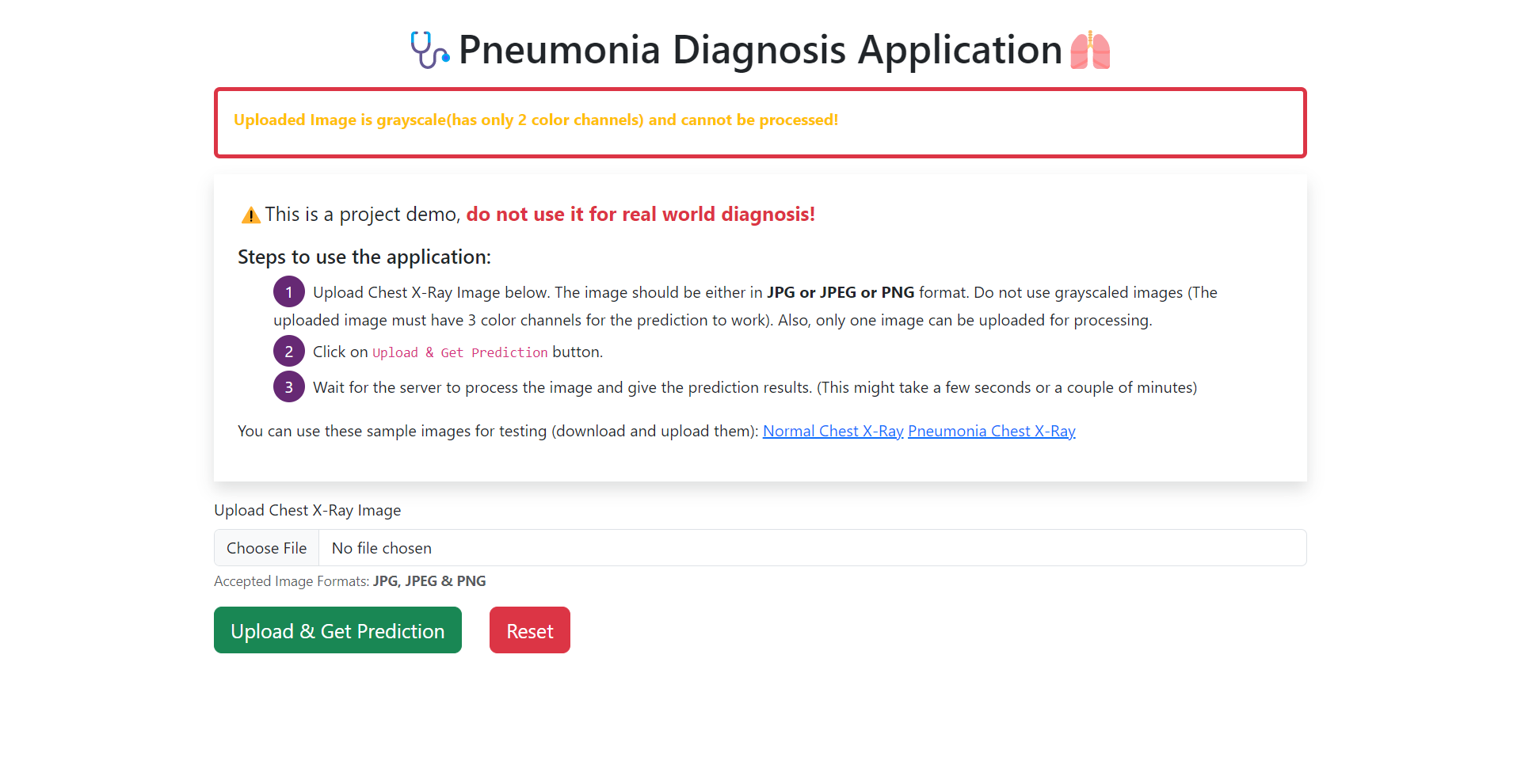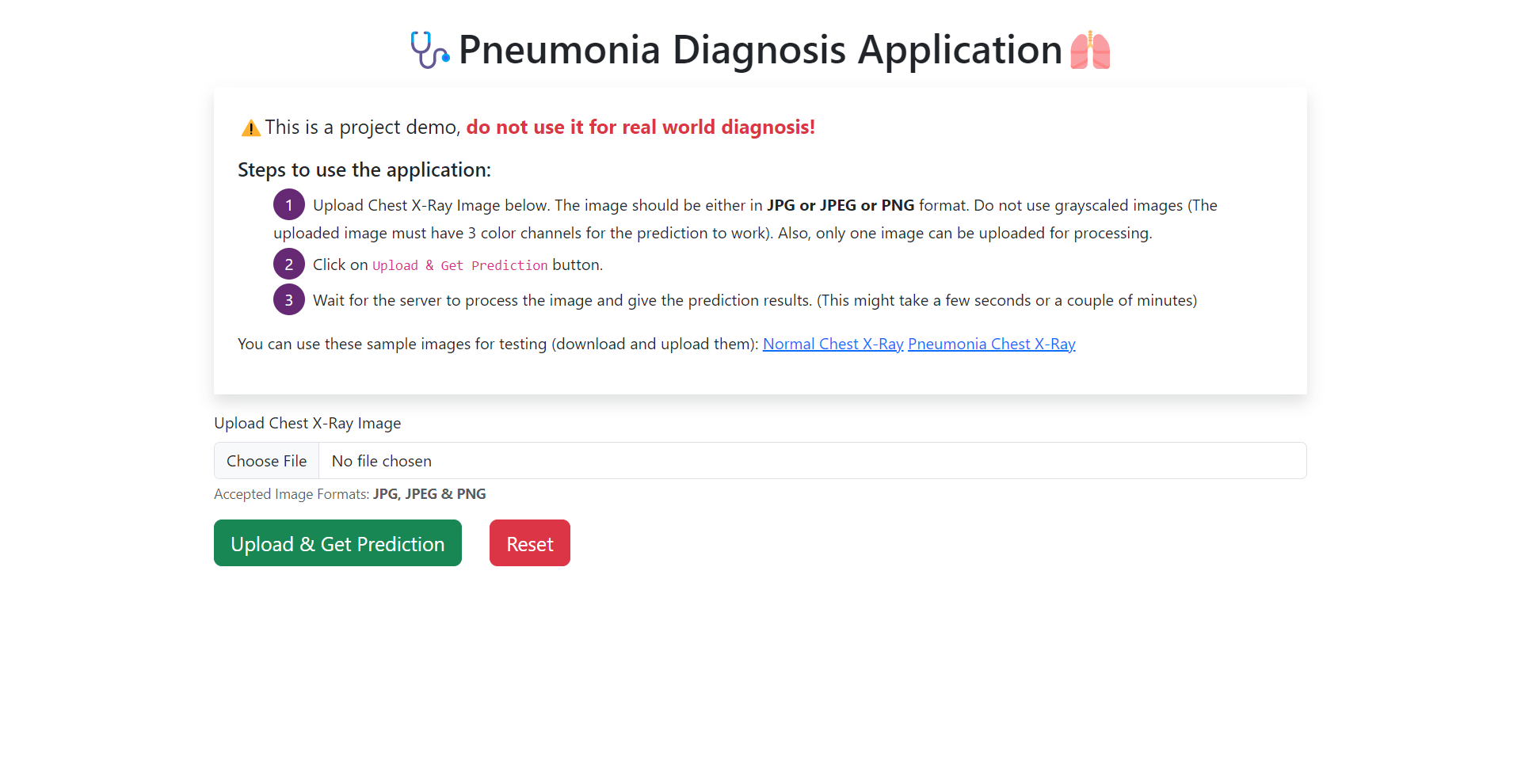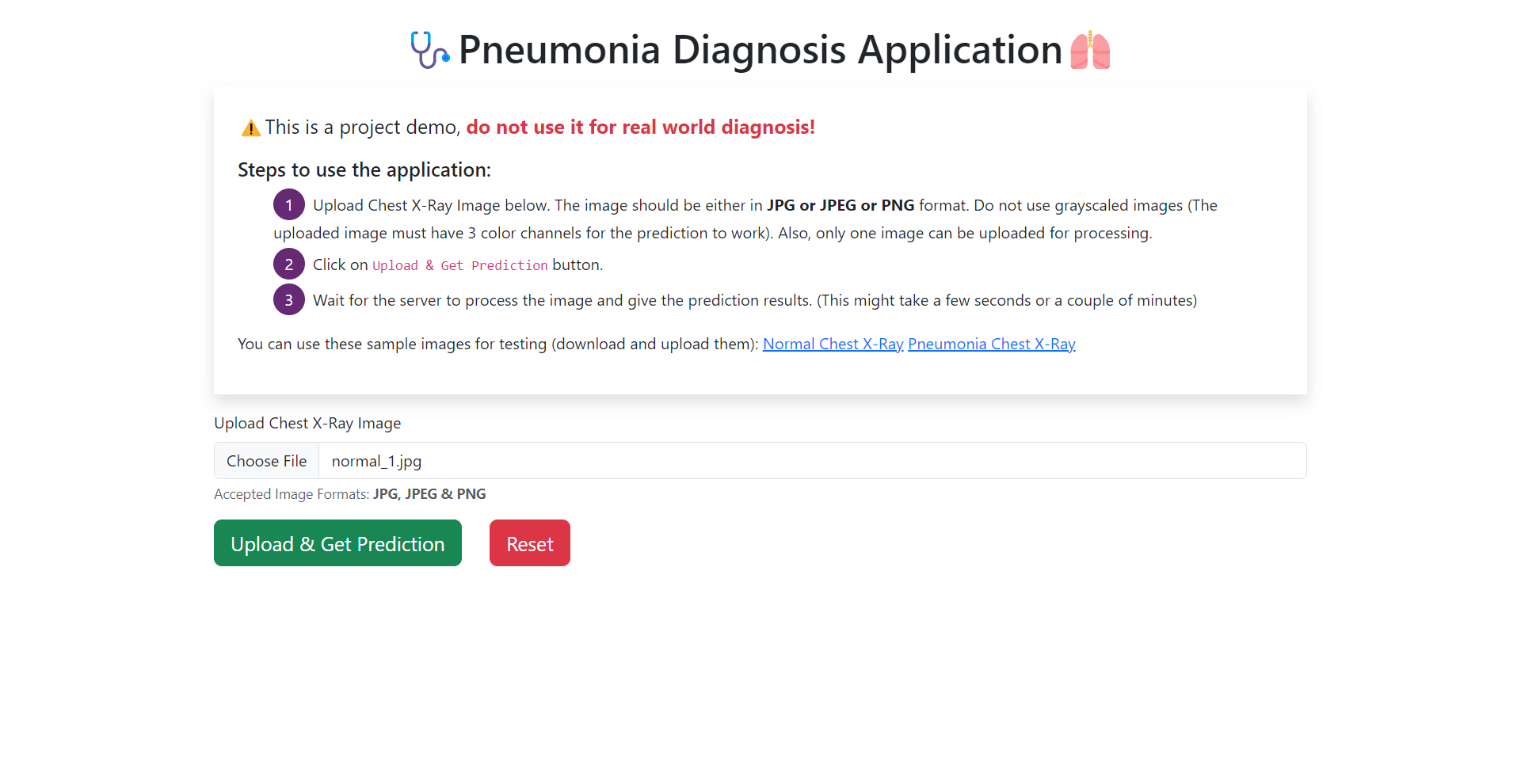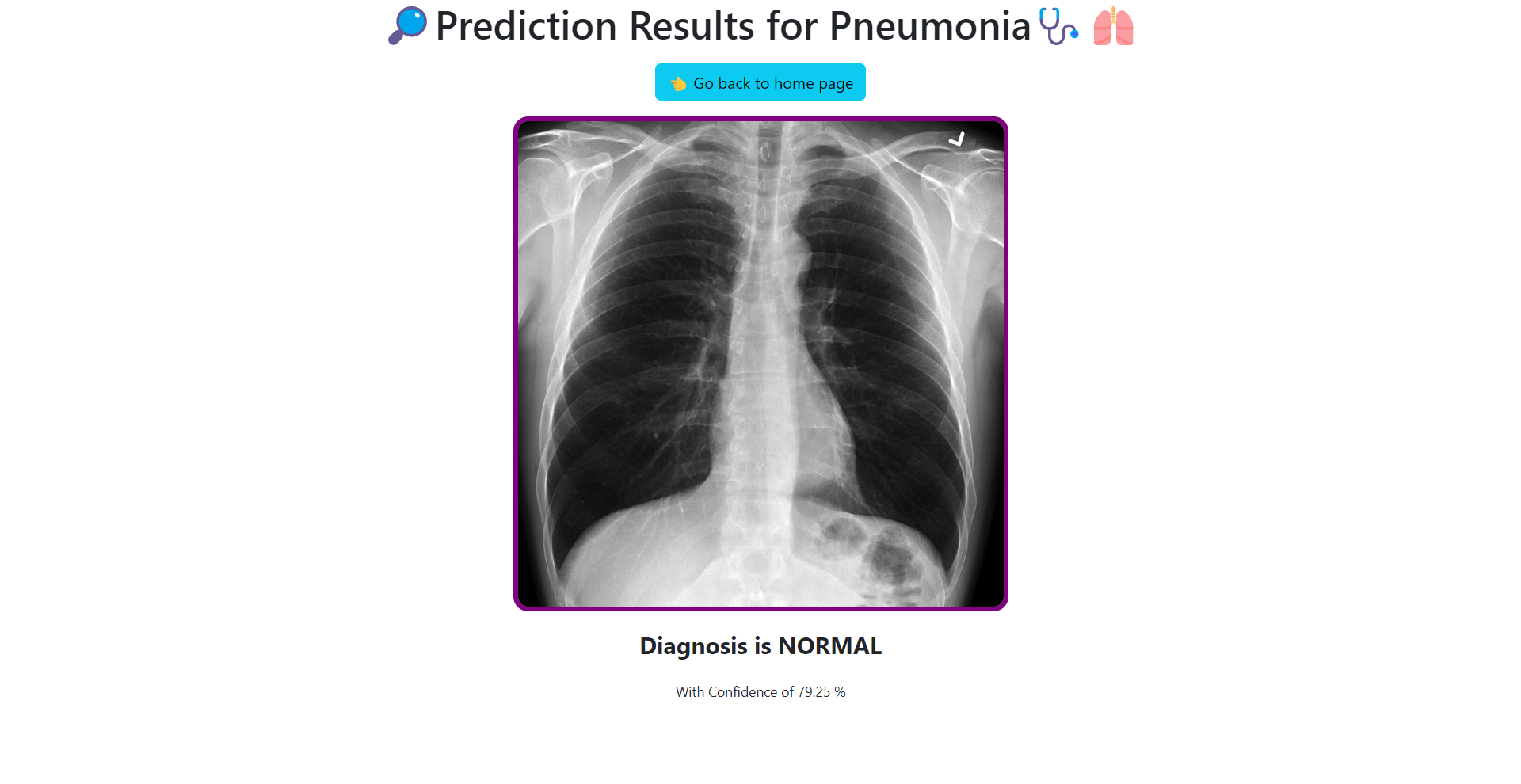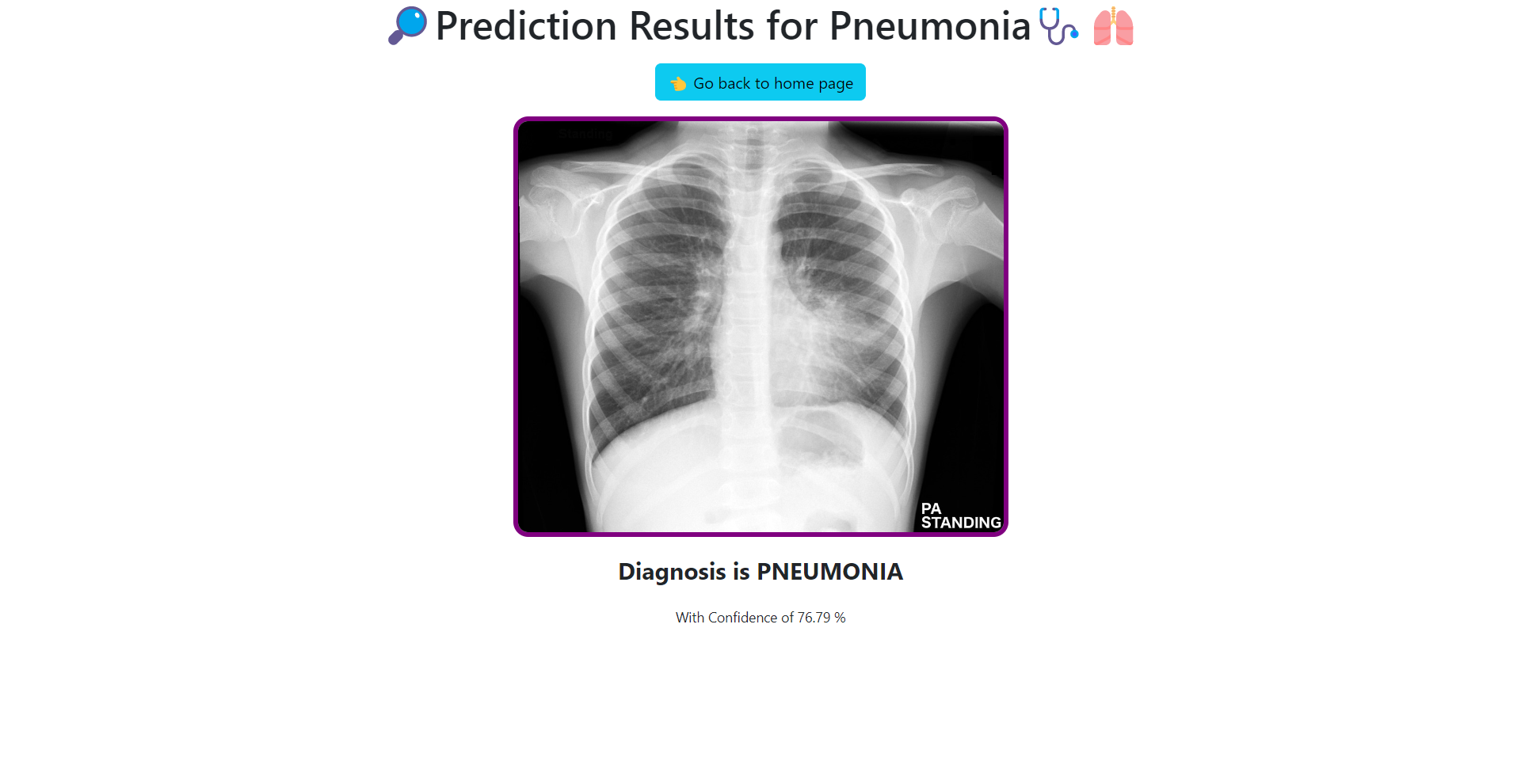- I used this dataset from kaggle.
- First, I built a custom CNN.
- Later, I built several Transfer Learning (Feature Extraction + Fine Tuning) models using:
- VGG16
- ResNet152V2
- Out of the 5 model that I built, ResNet152V2 model with feature extraction and a custom classifier gave the best accuracy of 89.7%. (For the metrics of all models, please refer to
Summary.xlsx) - All the models were built using TensorFlow.
- I used Google Colab (with its free GPU) for the entire ML workflow. I downloaded this notebook as
Pneumonia_Diagnosis_From_Chest_X_Rays_Final.ipynb. - I then used that best ResNet152V2 model for making inferences, by building a web application using Flask python framework, where a user can upload a chest x-ray image and get the diagnosis results.
⚠️ NOTE: The best ResNet152V2 saved model is very large, hence is not present in this repo. Download it from here [Open this link and download the entire folder. You will download a ZIP file. Unzip it and inside it, you will find a folder calledresnet152v2_feature_extraction_final_best_model. Place this folder in the root of your project. Note that the filename should be as it is]. This file is required otherwise by the flask server to perform inferences.
➡️ app.py - Flask Server
➡️ Pneumonia_Diagnosis_From_Chest_X_Rays_Final.ipynb - IPython Notebook containing the code used to train various TensorFlow models.
➡️ predict_result.py - Script used to load the saved model and perform inference for an input image.
➡️ requirements.txt - Contains the python dependencies & the associated versions.
➡️ Summary.xlsx - Excel file containing the metrics (such as train|val|test loss|accuracy, precision, recall, etc) for the 5 models that I have built
➡️ static and templates - Flask uses these folder to serve static files, store uploaded images & render HTML pages.
- Clone the repo.
- Download the model from the link given above.
- Make sure your folder structure is as follows:
resnet152v2_model_folder (Download it from above link)
static
templates
app.py
predict_result.py
requirements.txt
- Within this directory, install the dependencies using the command:
pip install -r requirements.txt - Within this directory, run the following command to start the server:
flask --app app run - Navigate to
localhost:5000to access the web application. - You can use the following images for testing: Normal Chest X-Ray Pneumonia Chest X-Ray
(Some images which you download from the internet, or kaggle dataset are grayscale images and they do not contain 3 color channels. This model specifically required 3 color channels for inference.)
